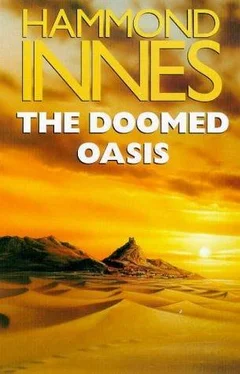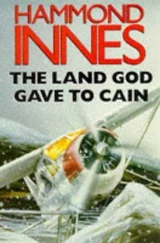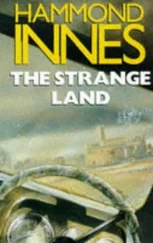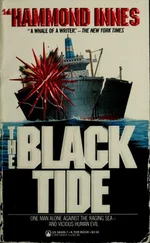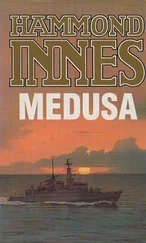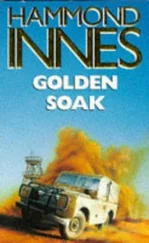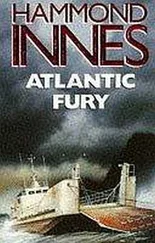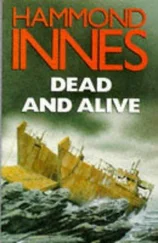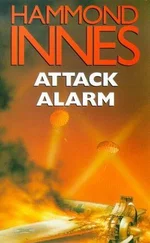Hammond Innes - The Doomed Oasis
Здесь есть возможность читать онлайн «Hammond Innes - The Doomed Oasis» весь текст электронной книги совершенно бесплатно (целиком полную версию без сокращений). В некоторых случаях можно слушать аудио, скачать через торрент в формате fb2 и присутствует краткое содержание. Жанр: Прочие приключения, на английском языке. Описание произведения, (предисловие) а так же отзывы посетителей доступны на портале библиотеки ЛибКат.
- Название:The Doomed Oasis
- Автор:
- Жанр:
- Год:неизвестен
- ISBN:нет данных
- Рейтинг книги:5 / 5. Голосов: 2
-
Избранное:Добавить в избранное
- Отзывы:
-
Ваша оценка:
- 100
- 1
- 2
- 3
- 4
- 5
The Doomed Oasis: краткое содержание, описание и аннотация
Предлагаем к чтению аннотацию, описание, краткое содержание или предисловие (зависит от того, что написал сам автор книги «The Doomed Oasis»). Если вы не нашли необходимую информацию о книге — напишите в комментариях, мы постараемся отыскать её.
The Doomed Oasis — читать онлайн бесплатно полную книгу (весь текст) целиком
Ниже представлен текст книги, разбитый по страницам. Система сохранения места последней прочитанной страницы, позволяет с удобством читать онлайн бесплатно книгу «The Doomed Oasis», без необходимости каждый раз заново искать на чём Вы остановились. Поставьте закладку, и сможете в любой момент перейти на страницу, на которой закончили чтение.
Интервал:
Закладка:
He stared at me hard and then he gave a little nod. ‘Okay. I expect you’ll be all right. I’ll notify the authorities, of course.’ And he slammed in the gear and went roaring across the courtyard and out through the empty gateway. The cloud of dust he’d raised gradually settled and I walked to the gate and stood there watching his headlights threading a luminous trail through the date gardens. And when they finally disappeared in the open desert beyond, I went slowly down the hill, heading for the murmur of voices, the glimmer of lights amongst the palms beyond the village.
I was alone then — more alone than I’d ever been in my life before.
The moon was just risen and with the stars the village was lit by a soft translucence. The mud buildings were pale and empty, the open square deserted save for the hens nested in the dust and a solitary sad-looking donkey. Beyond the village I followed the crumbling wall of a date garden until I came out into the open again. All Saraifa seemed gathered there, the men bunched together like a crowd at a cock-fight, the women dark bundles flitting on the edge of the crowd or squatting like hens in the sand. Everybody was talking at once, a thick hubbub of sound that seemed to lose itself instantly in the great solitude of the desert that stretched away to the east, to the dim-seen line of the mountains.
Nobody took any notice of me as I skirted the crowd. It was thickest close by the date garden. Out towards the desert it thinned, and here I found a raised water channel built of rock and spanning a hollow Roman aqueduct. It was my first sight of a falaj; and it was empty. I leaned over it, touched the inside with my fingers. It was still damp and in a little puddle of water at the bottom tiny fish flashed silver in the starlight as they gasped for breath. Clearly the water had only recently ceased to flow, turned off as though by a tap.
Fascinated, I crossed the hollow to the far side. For perhaps twenty yards the falaj was open, a neat, vertical-sided trench running a black shadow line across the sand. It was about two feet across and the same deep. I walked along it to the point where it was roofed over. For a hundred yards or so I could trace the outline of it, but after that the sand swallowed it up entirely. From a slight rise I looked towards the mountains. Anything up to thirty miles, Entwhistle had said, and they were the source of the water.
I walked slowly back along the line of the falaj, to the point where it broke surface, and at the sight of the empty trough with the little fish gasping out their lives, I could understand the calamity of it, the sense of disaster that had seized upon the people of this channel-fed oasis. A dry falaj meant a ruined date garden, the beginnings of famine. Only five or six left out of more than a hundred, tribal wars…. The place was as vulnerable as an oil refinery fed by a desert pipeline. Cut the falaj and Saraifa ceased to exist.
The sound of male voices died away, leaving only the high-pitched chatter of the women; there was a stillness of decision as I approached the crowd gathered about the falaj channel where it entered the date garden. In the centre stood Sheikh Makhmud and his brother Sultan. Khalid was facing them, arguing fiercely. His features had no trace of effeminacy in them now. From the skirts of the crowd I saw Sheikh Makhmud turn impatiently away from his son. He called a man forth by name — Mahommed bin Rashid; a fierce, hawk-faced man with a black beard, the one who had stopped us as we entered Saraifa. He gave him an order and a long A — a-agh of satisfaction issued from the throats of the crowd. Instantly all was confusion. Men brandished their weapons, calling on Allah, as a dozen or more of them were singled out and went hurrying back to the palace. Sheikh Makhmud turned and with his brother and his secretary followed them slowly.
It was the signal for the crowd to break up, and as they straggled away from the empty falaj, Khalid was left standing there alone. A few men only remained, a little, compact group of silent followers ranged behind him. They were different from the rest in that their arms were without any silver trappings; they carried British service-pattern rifles.
He stood for a long time without moving, staring after his father and the crowd that followed him, noisy now with the excitement of action. And when they had disappeared from sight he turned to his men with a gesture of dismissal and they, too, moved away, but still silent, still in a compact group. He was completely alone then, staring down at the empty water channel, lost in his own thoughts. Even when I approached him he didn’t stir. I don’t think he knew I was there, for when I asked him whether he spoke English, he turned to me with a start of surprise.
‘A little English — yess.’ His speech was slightly sibilant, his features marred when he opened his mouth by long, widely-spaced teeth. ‘I am at Bombay University, my education.’ He was staring up the hill towards the palace, his mind still on what had happened. They think they are being brave and that I am afraid. They don’t understand.’ His tone was bitter and angry. ‘Their guns are very much old and the men of Hadd will be waiting for them.’
I asked whether it was Hadd who had stopped the water supply and he said, ‘Yess. They perpetrate it once before.
Then the British help us. Your people send soldiers with automatic guns and mortars. But not now. This time we are alone.’
He turned and I saw his dark eyes, sad in the starlight. ‘The falajes you understand, sir, are very much vulnerable.’ He had acquired the Indian penchant for long words. And he added with great determination, speaking slowly as though stating something to himself, ‘We must fight for them now. But not like this. This way is to die.’ He began to walk slowly towards the palace.
There were many things I wanted to ask him, but this didn’t seem the moment and I walked beside him in silence, conscious of his preoccupation. His head was bent and he moved slowly, his sandals dragging in the sand. He was only two years older than David. I learned that later. Yet his manner was that of a man upon whom the whole responsibility for this desert community rested. ‘Do you know Arabia much, sir?’ he asked suddenly. And when I told him this was my first visit and that I’d only arrived a few days ago, he nodded and said, ‘You are from a town called Car-diff, yess? David speak of you sometimes.’
That mention of Cardiff, the knowledge that this young Arab knew who I was … Saraifa seemed suddenly less remote, my position here less solitary. ‘When David first come here, he is like you; he speak Arabic a little, but he don’t understand our customs or the way we live here in the desert. The falajes mean nothing to him and he has never seen the big dunes when the shamal is blowing.’ He had stopped and he was smiling at me. Despite the wide-spaced, fang-like teeth it was a gentle smile. ‘I am glad you come now.’ He offered me his hand and I found my wrist gripped and held in a strong clasp. ‘You are David’s friend and I will see that no harm come to you.’
I thanked him, conscious that he had given me the opening I needed. But already I was becoming vaguely aware of the subtlety of the Arab mind and this time I was determined not to make the mistake of asking direct questions. Sue’s words came unconsciously into my mind. ‘David wanted to defend Saraifa, too.’ I saw his face soften as he nodded and I asked, ‘What was it about this place that so captured his imagination? His sister said he could be very emotional about it.’
‘His sister?’ He smiled. ‘I have seen his sister once, when I am taking a plane at Sharjah. She is with the doctor and I do not speak. A very fine person I think.’
Читать дальшеИнтервал:
Закладка:
Похожие книги на «The Doomed Oasis»
Представляем Вашему вниманию похожие книги на «The Doomed Oasis» списком для выбора. Мы отобрали схожую по названию и смыслу литературу в надежде предоставить читателям больше вариантов отыскать новые, интересные, ещё непрочитанные произведения.
Обсуждение, отзывы о книге «The Doomed Oasis» и просто собственные мнения читателей. Оставьте ваши комментарии, напишите, что Вы думаете о произведении, его смысле или главных героях. Укажите что конкретно понравилось, а что нет, и почему Вы так считаете.
